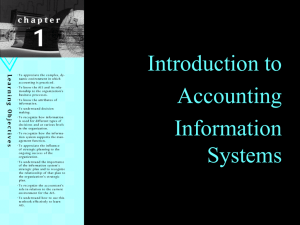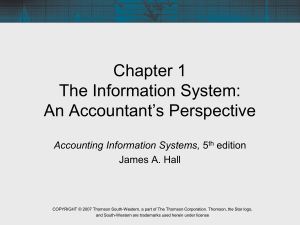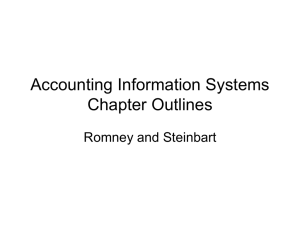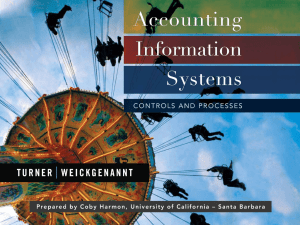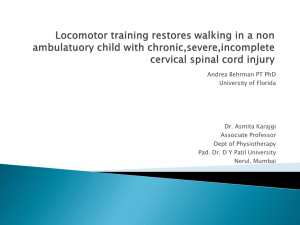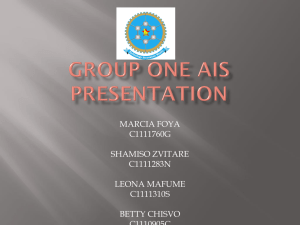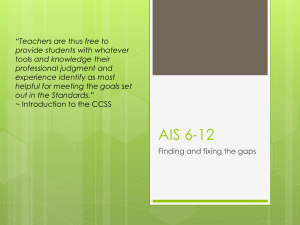the True Heading Seawork 2012 AIS
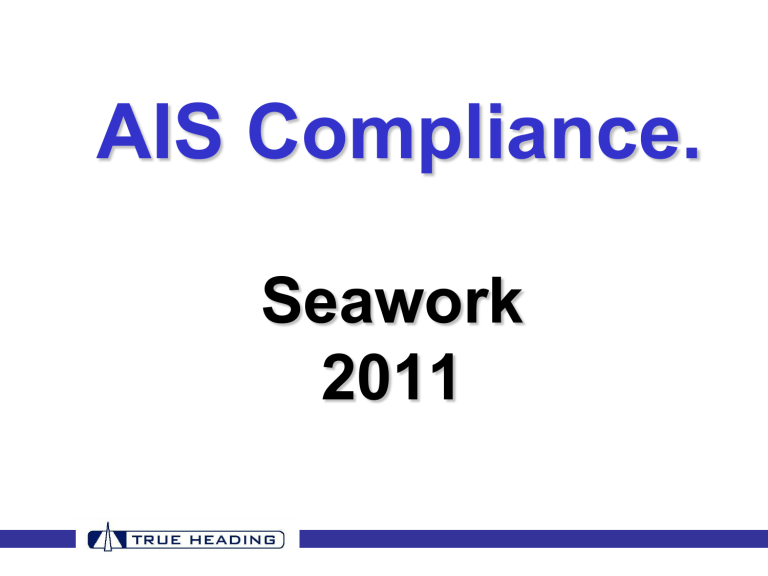
AIS Compliance.
Seawork
2011
Jocke Schedin
Sales Manager
+46 76 779 43 00 js@trueheading.se
Points to cover:
• Who is True Heading?
• What is AIS – short presentation:
What ships must have AIS today?
Difference between Class A and Class B?
Limitations.
• Who sets the standards?
• AIS regulations within 3 years.
• Pending AIS regulations.
• Who controls the compliance with the regulations?
TRUE HEADING AB (publ)
• Founded: March 2004
• Located in Stockholm, Sweden
• Experts within AIS technology
• Customers:
Swedish Navy
Swedish Maritime Administration
Commissioners of Irish Light
Trinity House
Turkish Navy
Hong Kong Marine Department
Japanese Coast Guard
And many more happy customers……
TRUE HEADING AB (publ)
• The founders have been in committee work for the AIS standards :
IEC (International Electrotechnical Commission)
ITU (International Telecommunication Union).
• Involved in development of the ITU standard 1371-4
(former 1371-1) => The base for the AIS standard
All the functional and technical requirements needed for AIS
TRUE HEADING AB (publ)
• Members of IALA ( www.iala-aism.org
) =>
International Association of Marine Aids to Navigation and Lighthouse Authorities
=> Recommendations how AIS shall work and how to implement AIS functions.
• Members of CIRM ( www.cirm.org
) =>
COMITE INTERNATIONAL RADIO-MARITIME (CIRM)
(The International Association for Marine Electronics Companies)
=> Liaison group for Marine Electronic companies.
CIRM is one of the nine original international bodies accredited in 1949 as a non-governmental organisation in consultative status to the International
Maritime Organization (IMO).
What is AIS?
• Automatic Identification System => Anti collision system
• The most extensive technical marine standard that has been developed in recent years.
• Today the following ships MUST have an AIS Class A transponder onboard according to SOLAS Chapter 5, regulation 19 -2.4:
All ships at international voyage over 300GT
All cargo ships at national voyage over 500GT
All passenger ships (national regulations may apply)
• According to the Rhen Convention:
All ships over 20m on inland water ways that can move by their own propulsion
What is AIS?
• Regulations took effect December 31 st 2004
• Since 2004 AIS Class B units have become more and more common and will probably increase even more in the future.
• Major difference between Class A and Class B units:
The actual data sent out.
The reporting interval of the dynamic data.
The principle of sending data => SOTDMA and CSTDMA.
Ouput 2W / 12W
What is AIS?
The data transmitted
• Dynamic Data
• Static Data
What is AIS?
The data transmitted
• Dynamic data:
Position
SOG/COG
Heading
ROT
=> Class A and B
=> Class A and B
=> Class A and B
=> Class A only.
MMSI number
Ma ritime Mobile Service Identity => Class A and B
What is AIS?
The data transmitted
• Static data:
MMSI number
Call sign
Name of ship
Overall dimension/ reference for position
=> Class A and B
=> Class A and B
=> Class A and B
=> Class A and B
IMO number
ETA
Destination
Maximum present static draught
=> Class A only
=> Class A only
=> Class A only
=> Class A only
What is AIS?
Reporting interval of the Dynamic data
Speed (knots)
0 – 14
14 – 23
23 +
At anchor (if navigational status is changed to “Moored”)
CLASS A
Update Rate
10 sec
6 sec
2 sec
180 sec
Increased U R*
3 1 /
3 sec
2 sec
2 sec
* Increased update rate will occur when the ship turns faster than 10 degrees/s
Update Rate every
Below 2 knots
CLASS B
30 sec
180 sec (automatically)
Common for Class A & B: Static data every 6 th min!!
What is AIS?
SOTDMA
I I
D
Time
I G
B H F A
E
C
B H
D I
F
G
A
E
C
B
What is AIS?
CSTDMA
The Class B unit will listen and see if a channel is “free”, if yes, it sends.
What is AIS?
Limitations
• AIS as a system has VERY few limitations =>
The system will still work even if the load is over 100%!!!
• The weakness of the system is determined by its weakest link.
i.e. make sure that the accessories used in the system e.g. the antennas, antenna cables, connections are 100% secure!!
• If the AIS system is not integrated with the navigational system it will add nothing to the navigation.
• The configuration of the systems.
• Limitation in VHF range (“line of sight”).
• Adequate user training and information about the system and its limitations.
Who sets the standards?
Who shall have AIS?
• IMO => Decided within MSC (Marine Safety Committee).
• National regulations might apply, e.g.:
EU for fishing vessels
Inland water ways
USA: Plans for smaller vessels
Turkey have there own regulations regarding Class B (12W)
Russia => M ust be able to receive position from both the
GLONASS and GPS system
Who sets the standards?
Who decides about frequencies
?
• ITU, with support by IALA.
Who decides about test procedures and standards?
• IEC, with support by national standard committees.
• IEC TC-80 =>
Technical committee that handles all marine related electrical and radio standards.
E.g. GMDSS, VHF, AIS, radar etc.
Who sets the standards?
Who is decides about operational regulations?
• Foremost IALA and IMO
• IALA develops something called “recommendations”:
E.g. A-123, A-124 and A-126 (guidelines for use of AIS).
Planning of base station networks so they will work w/ time slots etc.
Recommended system redundancy.
In what way different countries shall exchange information about their AIS networks.
• IMO provides installation guidelines and operational guidelines
(circulars) to mariners. E.g. how to install the equipment in ships.
Regulations within 3 years.
• New regulations within the EU
• All fishing vessels over 15m after 2014 must have a
Class A transponder:
From 2012 => All fishing vessels over 24m
From 2013 => 18 – 24 m
From 2014 => All fishing vessels over 15m.
• OK with AIS SART instead of conventional SART to comply with
GMDSS regulations.
Pending Regulations.
• Updated Class A standard:
Increase with two new frequencies
To be able to be received via satellite
• Discussion about PLB ´ s via AIS.
“What will happen if I activate my AIS PLB?”.
Number of MMSI numbers available must be increased.
• New Class B standard for SOTDMA
Difference will be what information is sent out.
Difference will be how the information is sent out.
Difference in output => 2W / 12W
Who controls compliance w/ regulations?
• Maritime Authorities.
“Port State Control” in each country
In conjunction w/ e.g. coast guard
MCA (Maritime and Coast Guard Agency) in the UK.
Dover control will call up ships that are visible on radar but not on AIS
E.g. in the US, fines of $1500 if sending out incorrect AIS data
THANK YOU!!
Thank you and we will be more than willing to welcome you on Point Distributions stand to discuss AIS further.
If you would like a copy of our presentation please leave your email address with Chris Cole of Point
Distribution or email him at chris.cole@pointdistribution.co.uk
